
Pumpkins and their cousins, the winter squashes, are among the signature ingredients of fall. Their vivid greens and oranges, and less common whites, reds and yellows, are used for their ornamental value as well as their culinary qualities. Fresh and cooked pumpkin can both be stored for later use, depending on your needs.
Storing Fresh Pumpkin
Fresh pumpkin stores well, as long as it's handled carefully. Choose unblemished pumpkins that are heavy for their size, and have at least 2 to 4 inches of stem still attached. The stem continues to nourish the pumpkin even after it's cut, and helps it stay fresh. Pumpkins keep best at temperatures around 55 degrees Fahrenheit, and an old-fashioned root cellar works well. Otherwise, use a cool garage or basement . Air should circulate freely around the pumpkin to prevent mold and moisture buildup. A whole, fresh pumpkin lasts two to three months, unless it's cut.
Cut Fresh Pumpkin
Your Halloween jack o'lantern or wedges of a small, thick pie pumpkin are much the same for storage purposes. Once the pumpkin's been cut up, it doesn't keep like it does when it's whole. Usually, two to four days is as long as any cut pumpkin or winter squash should stay in your refrigerator before you use it. Always wash the outside of the pumpkin thoroughly before you cut into it, to avoid embedding any soil-borne bacteria in the edible flesh.
Cooked or Canned Pumpkin
Once you've turned your pumpkin into baked slices or puree for pie-making, you can safely keep it in your refrigerator for up to a week. It should be packaged in airtight containers or jars, to prevent contamination by mold or bacteria and to limit the likelihood of absorbing flavors from other foods. To preserve cooked pumpkin for longer, package it in airtight bags or containers and freeze it for six to eight months. After that time it will still be edible, though its flavor will deteriorate. Vacuum packaging, which removes all the air from the bags, will give the longest storage life.
Canning Your Own
If you have a garden full of pumpkins and winter squash, you might have trouble using them all up or fitting them into your freezer. Dicing the pumpkin and canning it in a pressure canner is one way to preserve the pumpkins for later use. Don't can pumpkin puree or mashed pumpkin, which is dangerously susceptible to botulism. Cut the pumpkin into 1-inch cubes and par-cook them in boiling water, then pack the vegetable and its cooking water into jars.
Related Articles

How to Dry Pumpkins
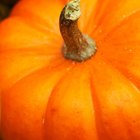
Can You Cook With a Halloween Pumpkin?

How to Keep Pineapple From Browning
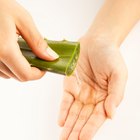
Can I Store Aloe Vera Gel From a Plant ...
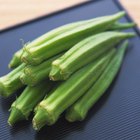
How to Tell When Okra Is Ripe

How Fast Does Cooked Spaghetti Squash ...
How Long Is it Safe to Keep Frozen ...

What Happens to Bananas Dipped in Lemon ...
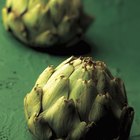
How to Parboil Artichokes
How to Keep Cut Cabbage From Going Brown
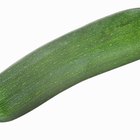
Calories in a Large Zucchini
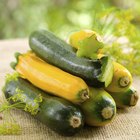
How to Freeze Raw Zucchini

How to Cook Pumpkin Guts
How to Store Your Fresh Cut Kale
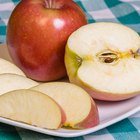
How to Preserve Fresh Apples

Can You Freeze Homemade Calzones?

Can You Eat a Cut Unrefrigerated ...
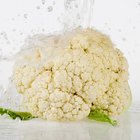
How to Blanch Cauliflower

How to Prevent Bananas From Browning ...

Does Shredded Coconut Go Bad?
References
Resources
Writer Bio
Fred Decker is a trained chef and prolific freelance writer. In previous careers, he sold insurance and mutual funds, and was a longtime retailer. He was educated at Memorial University of Newfoundland and the Northern Alberta Institute of Technology. His articles have appeared on numerous home and garden sites including GoneOutdoors, TheNest and eHow.
Photo Credits
Hemera Technologies/Photos.com/Getty Images